
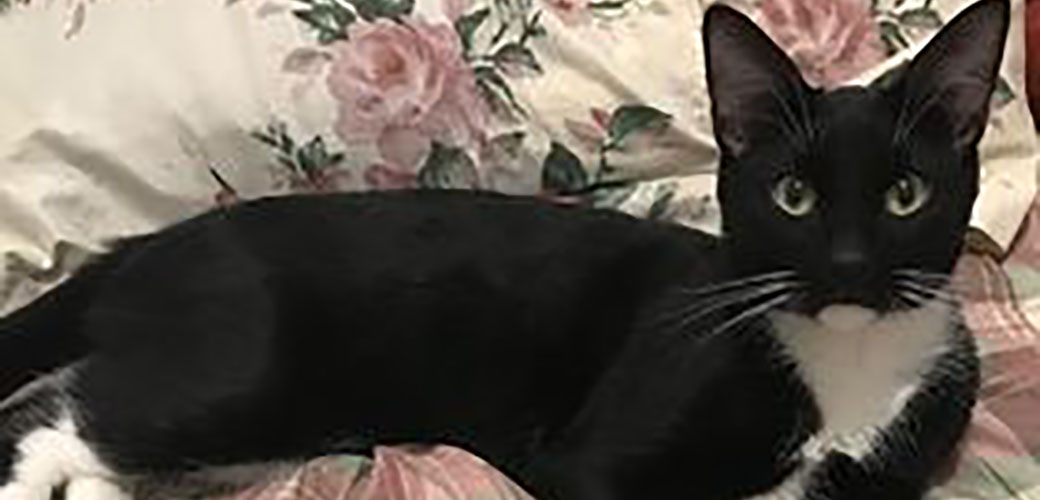
Jaqueline C. was one of 12,700 New York City residents who called the NYC COVID-19 Pet Hotline when seeking help for her one-year-old cat, S’mores.
The black-and-white Tom cat was spraying inside Jaqueline’s Bronx apartment, damaging the bathroom floor, and the odor drove her neighbors to complain.
“I didn’t have the resources to have S’mores neutered, which would eliminate the spraying,” says Jaqueline, who is unable to work and on disability. “I thought I’d have to give him up.”
By using the pet hotline, Jaqueline was able to have S’mores neutered at no charge at the ASPCA Community Veterinary Center (CVC) in the Bronx.

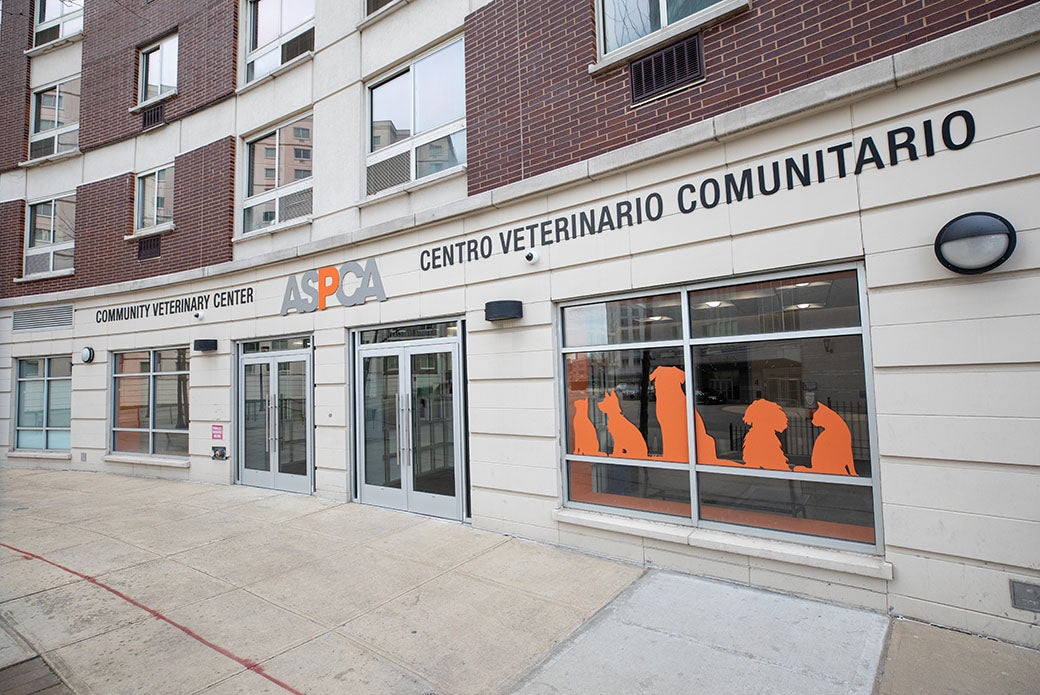
S’mores, top, was neutered at the ASPCA’s Community Veterinary Center (above) in the Bronx during the pandemic.
Pre-pandemic, Jaqueline could have relied on one of the six mobile clinics operated by the ASPCA across New York City’s five boroughs for help with S’mores. But operational challenges stemming from the pandemic—including staff and volunteer shortages due to illness or quarantine and the need for social distancing—forced limitations on the ASPCA’s shelter and veterinary services, including spay/neuter surgeries.
The ASPCA scaled down spay/neuter in the four regions where it typically performs over 90,000 surgeries annually: New York City; Los Angeles; Miami; and Asheville, North Carolina. In 2020, these facilities performed just over 47,000 surgeries, including S’mores’.
“At the outset of the pandemic, we wanted to conserve resources for human hospitals,” says Dr. Carolyn Brown, Vice President of Medicine for Community Medicine. “We pivoted from spay/neuter to urgent care, prioritizing those families most at-risk of losing their pets.”
New York City
The ASPCA Bronx CVC (where S’mores was neutered) handled a limited number of spay/neuter surgeries until the mobile vehicles resumed activity in November.
“Throughout the pandemic, we spayed cats and dogs suffering from pyometras (an infected uterus that can be fatal), which are considered emergencies,” says Delores DeFerrari, Director of Operations for Community Medicine.

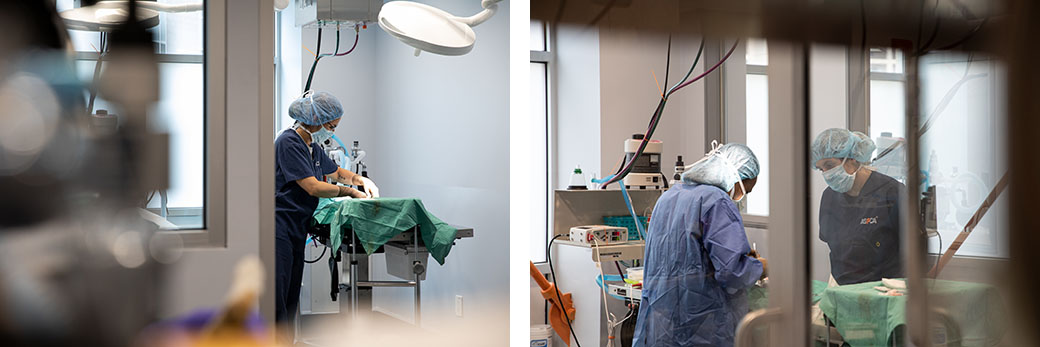
ASPCA veterinarians performing spay/neuter surgeries at the ASPCA’s Community Veterinary Center in the Bronx.
To provide services safely during the pandemic, ASPCA teams designed a virtual, online waitlist for clients, and as of early February, more than 4,000 clients have signed up for services.
“The waitlist helps keep social distancing mandates in place,” says Selena Edwards, Program Coordinator for Community Medicine. “And clients don’t have to show up in person until we call them.”

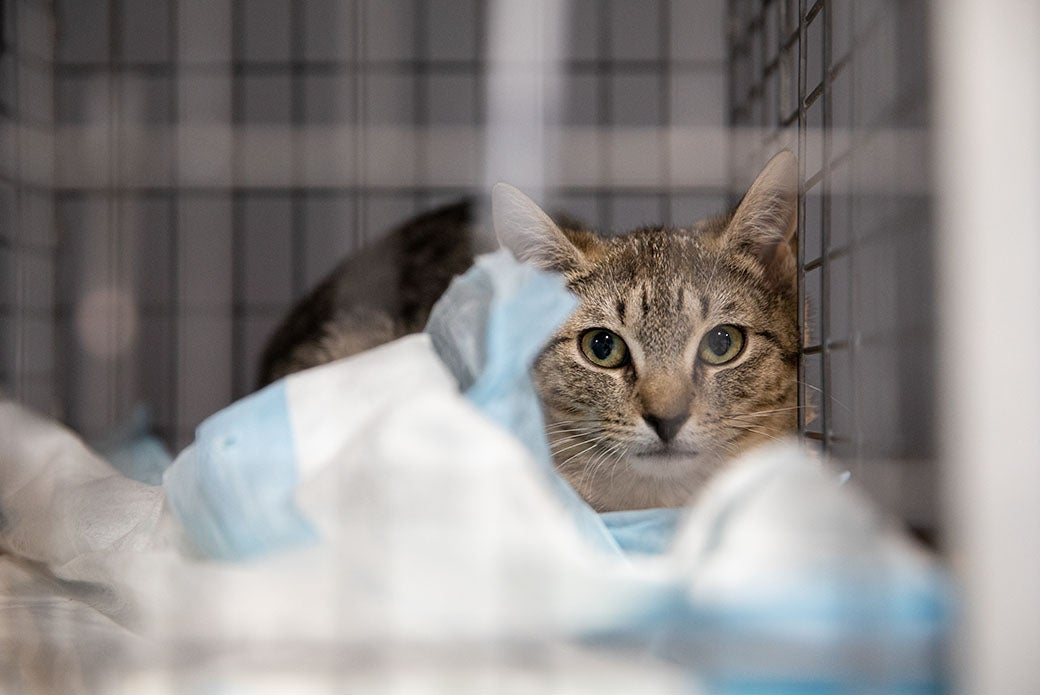
A cat awaits surgery at the ASPCA’s Community Veterinary Center in the Bronx.
Los Angeles
In Los Angeles, where the ASPCA operates a spay/neuter clinic in South L.A., capacity was reduced while the team put safety protocols in place.

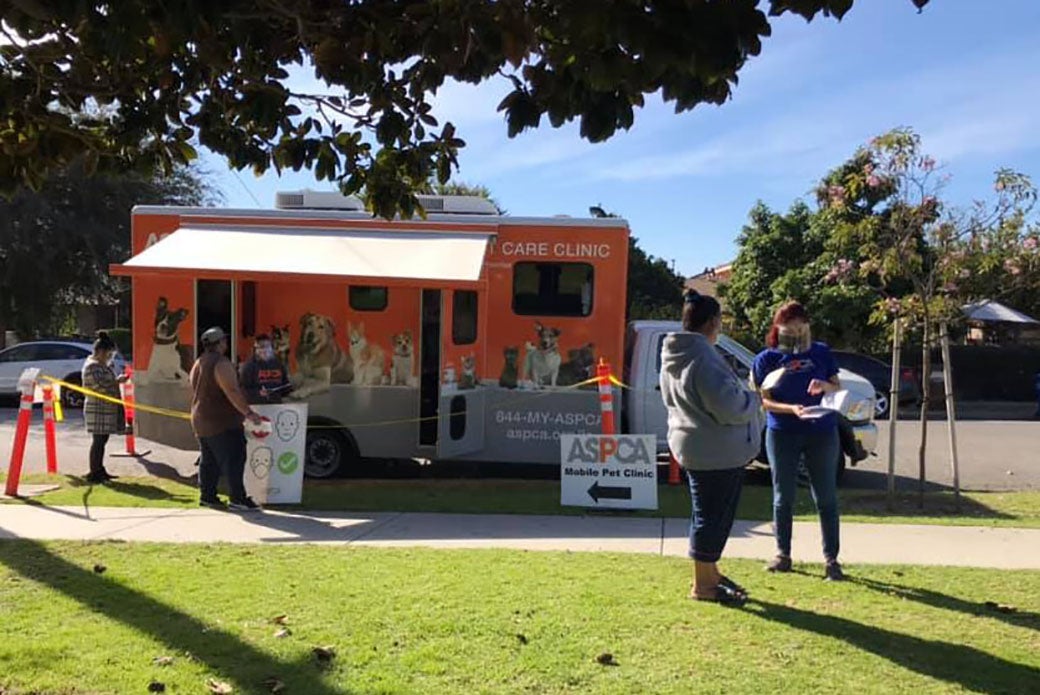
The ASPCA provides medical services, including spay/neuter surgery, for cats and dogs in the El Monte community of Los Angeles County.
Before the pandemic, the clinic, located next door to the South L.A. Animal Shelter, performed up to 60 surgeries a day for pets coming from that shelter, as well as cat rescue groups, “pee wees” (kittens in LA County shelters aged four to eight weeks), and the public. The clinic currently averages 25 surgeries a day.
Only one of the ASPCA’s three mobile spay/neuter vehicles remained open during the pandemic due to staffing issues.
“Our goal is to get back to a normal capacity in the first quarter of 2021,” says Jennifer Anderson, Director of Operations for Community Medicine in Los Angeles. Adding that since October 2019, more than 4,000 community cats have been altered.
“We did as much volume as was feasible and prioritized spay/neuter surgeries where we could have the most impact,” says Jocelyn Kessler, Vice President of Operations for Community Medicine.

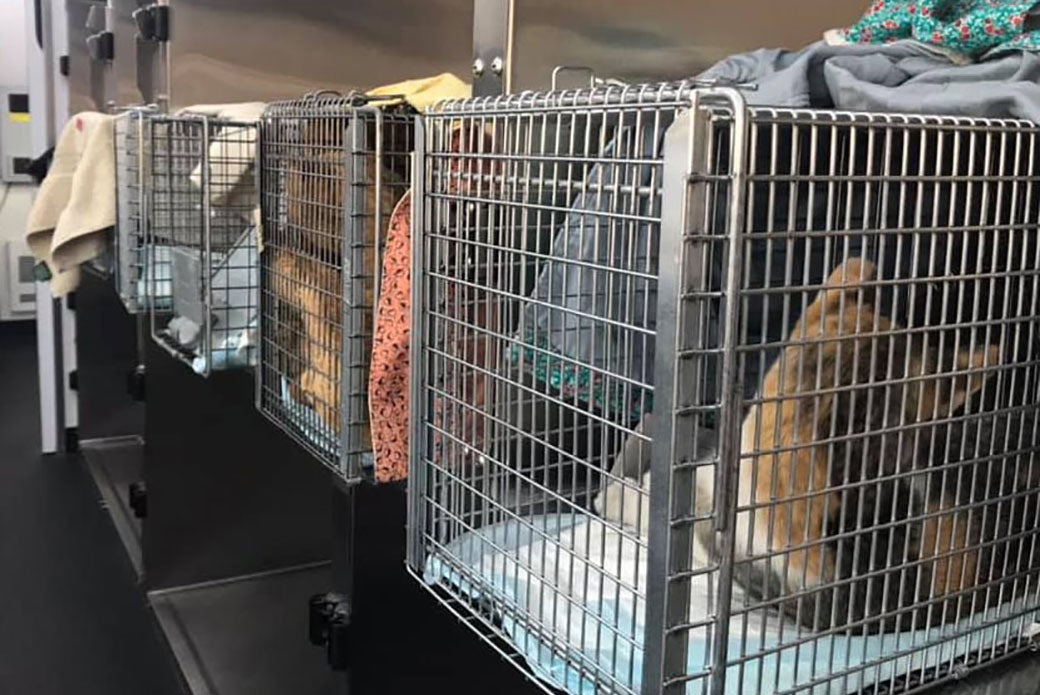
Community cats awaiting spay/neuter surgery by the ASPCA in Los Angeles County.
As the New Year dawned, the ASPCA unveiled our Cat Spay/Neuter Project in El Monte to help reduce shelter intake from this under-resourced community. The program includes free spay/neuter and preventive and basic care.
“It feels great to be directly in the community again and speaking with residents—at a safe distance, of course,” says Jennifer.
North Carolina
In a normal year, the ASPCA Spay/Neuter Alliance (ASNA) in Asheville, North Carolina, spays and neuters more than 25,000 cats and dogs and trains 650 of veterinarians and vet students in effective spay/neuter techniques.
“But 2020 was not a normal year,” says Eleanor Sprinkle, ASNA Vice President. “We finished with 17,566 surgeries over nine months and had to suspend training altogether, offering some virtual consults for surgical teams instead.”

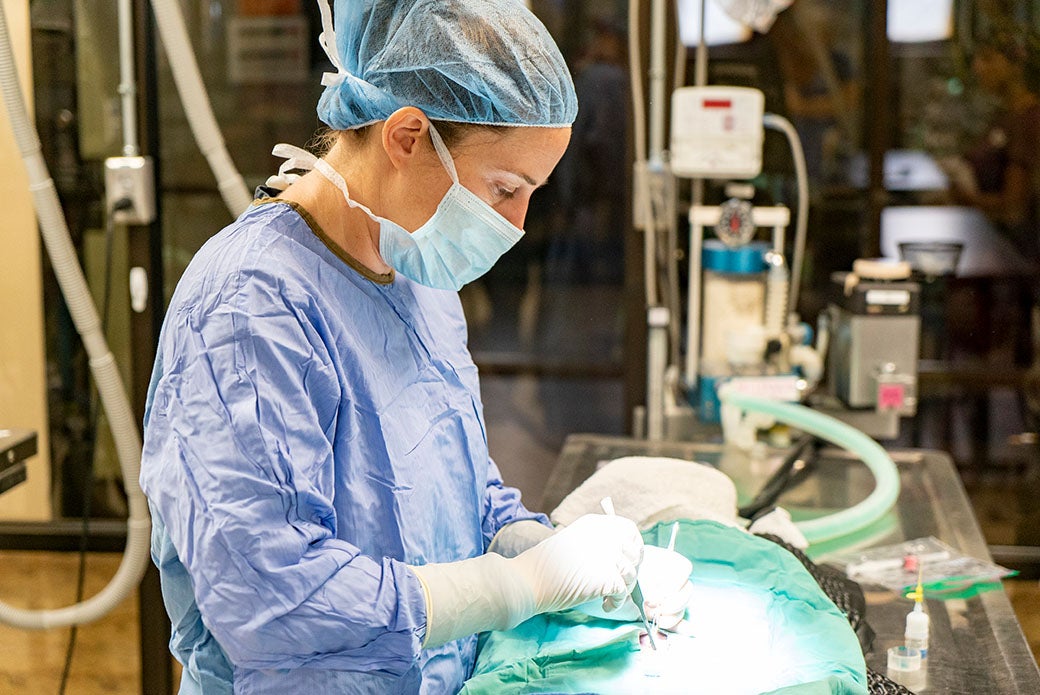
Dr. Lindsay Henschel, Medical Director for the ASPCA Spay/Neuter Alliance, spays a cat.
For three months, while spay/neuter services were shut down, ASNA reinvented itself as a primary and urgent care clinic. The transformed clinic, open six days a week for four months, treated nearly 500 cats and dogs for ailments like ear hematomas, lacerations, abscesses and skin, eye and gastrointestinal issues.
“By switching our focus, we were able to respond to the biggest animal needs,” says Eleanor. “We still had a tremendous impact on animals in Western North Carolina despite all the chaos we had to work around.”


More than 17,500 cats and dogs were spayed and neutered at ASNA in 2020.
Miami
The ASPCA’s Miami initiative, which opened a Community Veterinary Center (CVC) in Liberty City in October 2019, also switched its focus to providing medical care to nearly 4,500 clients.

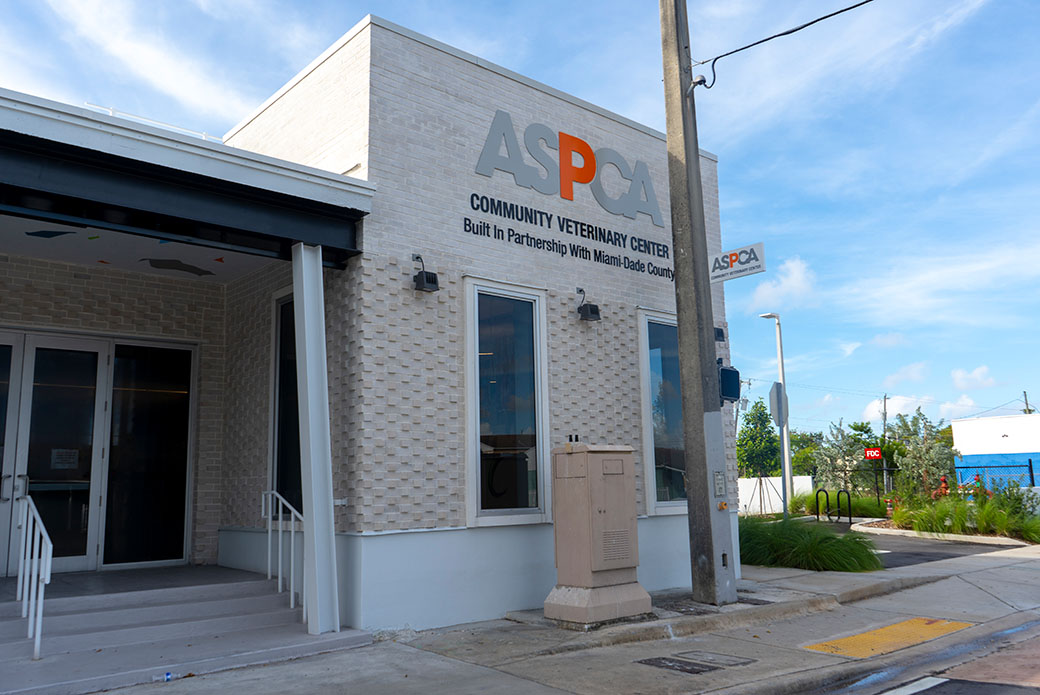
The ASPCA’s Community Veterinary Center in Miami’s Liberty City neighborhood, provided medical care to pets during COVID-19.
Like their colleagues in New York, Los Angeles and Asheville, the ASPCA team in Miami also distributed free pet food and supplies by appointment to clients with pets throughout the summer.
Helping Clients Connect to Help
Throughout 2020, the ASPCA’s help for vulnerable animals and anxious owners was fully supported by the Client Services team, based at the ASPCA’s Animal Poison Control Center (APCC) in Urbana, Illinois. The team, which assisted 13,000 animals like S’mores in 2020, connects pet owners to vital services including emergency medical care.
“Our clients faced new stressors because of COVID-19—job loss, illness, eviction and quarantine,” says Dr. Laura Stern, Director of Training and Quality Assurance for the APCC. “Each of these presented unique challenges for their pets as well.”
As for S’mores, his spraying has subsided and Jaqueline and her teenage daughter, Maya, count on him for love and companionship.
“I’m so glad we didn’t have to give him up,” says Jaqueline. There’s no doubt that S’mores is relieved as well as he continues to spend his days with his family.
Source: Read Full Article
